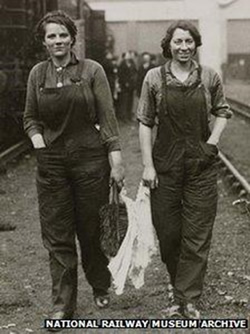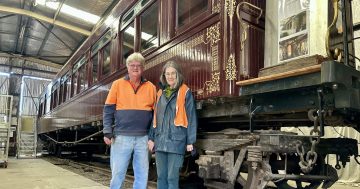 Staff from the Public Transport Authority (PTA) have marked 100 years since the first women were employed on Western Australian Government Railways (WAGR).
Staff from the Public Transport Authority (PTA) have marked 100 years since the first women were employed on Western Australian Government Railways (WAGR).
In a statement, the PTA said that on 6 December 1922, the first six women — Ida Kemshall, Madeleine Cole, Dolly Grey, Lil Gordon, Enid Piercy, and May McDonald — clocked on at the railway, becoming the first cohort of women to be employed following the abandonment of WAGR’s men-only policy.
“Little is known about the work lives of that original group, but according to an article in a 1957 issue of the Railway Institute Magazine, the women formed a close friendship, organising and enjoying monthly luncheons that would also be attended by the women who joined WAGR after them,” the Department said.
“The group paved the way for others to follow in their footsteps throughout the ensuing century.”
The PTA said in June this year that it was employing 633 women — an increase of 50 per cent since June 2017.
“Operational roles filled by female employees include railcar drivers, driver-trainers, depot masters, network controllers, control monitoring room operators, transit officers, shift commanders, customer service staff, station coordinators, signal technicians, as well as a big cohort of office-based staff,” the Department said.
“We are also playing a key role in a National Transport Commission campaign to recruit more people — including women — into the rail industry.”
Minister for Transport, Rita Saffioti said that while things had changed a lot since 1922, a lot was owed to trailblazers like the first six women who were employed at the WA Government Railways.
“These women were pioneers, breaking through societal expectations about females in the workforce to become the first women to be employed at WAGR and paving the way for the thousands that have come after them,” Ms Saffioti said.
“Even with the significant changes we have seen, rail remains a male-dominated industry, but the PTA continues to work hard to recruit and retain female employees into crucial operational and office-based roles,” she said.











